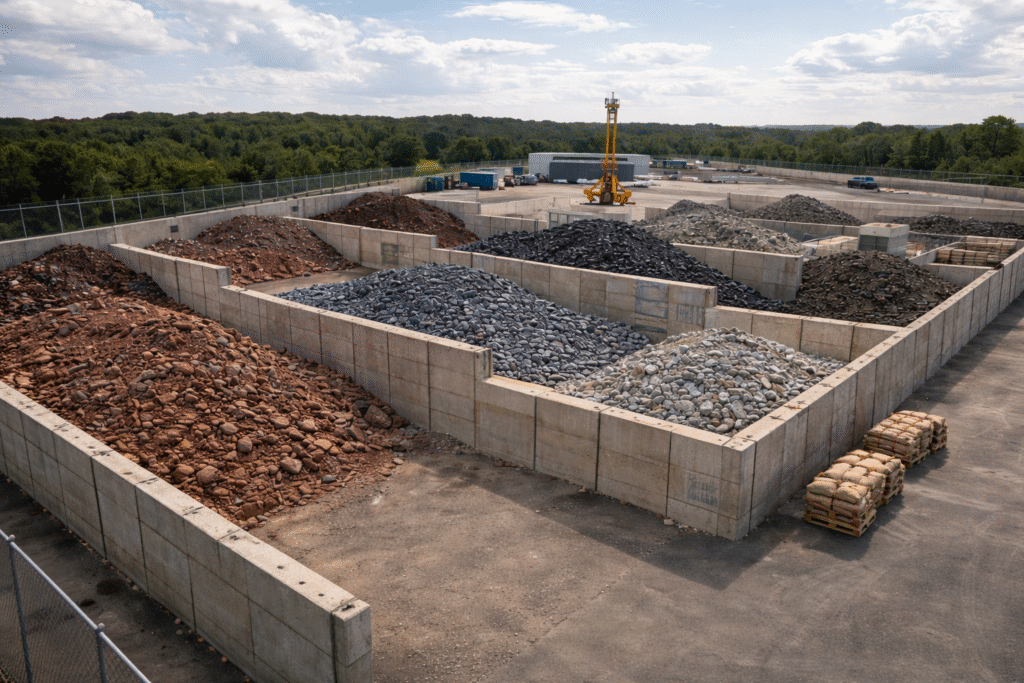Steelmaker Eyes Critical Minerals Expansion
Cleveland-Cliffs, one of America’s largest steel producers, is considering expanding its mining operations into rare earth elements (REEs) — materials essential to national defense, electric vehicles, semiconductors, and robotics.
CEO Lourenco Goncalves confirmed during the company’s third-quarter earnings call that Cliffs has identified two promising sites in Michigan and Minnesota through recent geological surveys. The company is now conducting feasibility assessments to determine whether mining operations would be commercially viable.
The announcement immediately boosted investor sentiment, with shares climbing 17% on Monday.
Why Rare Earths Matter
Rare earth elements are essential inputs in technologies that power both the U.S. military and the clean energy economy, including:
- Permanent magnets used in fighter jets, drones, and missile systems.
- Electric motors for EVs and wind turbines.
- High-performance chips used in computing and communications.
But despite their importance, China controls over 85% of global rare earth processing, leaving the U.S. heavily dependent on Beijing for critical supply.
In early October, China imposed new export restrictions on rare earths and related processing technologies — a move that prompted the U.S. President to threaten 100% retaliatory tariffs on select Chinese imports.
The U.S. currently has only one operational rare earth mine, owned by MP Materials (MP), which recently struck a landmark deal with the Department of Defense that included an equity stake, a price floor, and a guaranteed offtake agreement — signaling that Washington is willing to use industrial policy to rebuild domestic capacity.
Cleveland-Cliffs’ Strategic Opportunity
If Cliffs’ Michigan and Minnesota projects prove economically feasible, the company could become one of the first diversified steel producers to enter the critical minerals sector — an area now viewed as strategically vital for national security and industrial competitiveness.
The company’s timing may also prove advantageous. The U.S. administration’s Critical Mineral Independence Initiative has been funneling funding and equity support into domestic producers, creating potential partnership and subsidy opportunities for firms that can accelerate rare earth supply chain development inside the U.S.
“American manufacturing shouldn’t rely on China or any foreign nation for essential minerals,” Goncalves said in a statement. “Cliffs intends to be part of the solution.”
That message aligns closely with Washington’s push for self-sufficiency in strategic materials — one that could see Cliffs positioned at the intersection of heavy industry, national policy, and advanced manufacturing demand.
WSA Take
Cleveland-Cliffs’ pivot toward rare earths isn’t just an operational expansion — it’s a strategic alignment with America’s broader industrial and defense agenda. If even one of its Midwest sites proves viable, Cliffs could evolve from a traditional steelmaker into a critical mineral powerhouse supporting U.S. energy and defense independence.
It also highlights how U.S. industrial policy is reshaping markets: companies once tied to legacy commodities are now chasing strategic materials as government incentives and tariffs redraw the map of global supply chains.
Read our recent coverage on Anthropic’s Claude AI platform for biotech researchers
Visit the Wall Street Access homepage.
Disclaimer
Wall Street Access does not work with or receive compensation from any public companies mentioned. Content is for educational and entertainment purposes only.








